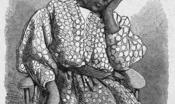text
Informational
An Ex-Slaveholder's View of the Negro Question in the South
Written in 1900, this text presents the views of a former enslaver about the value of slavery for those enslaved.
December 14, 2017


